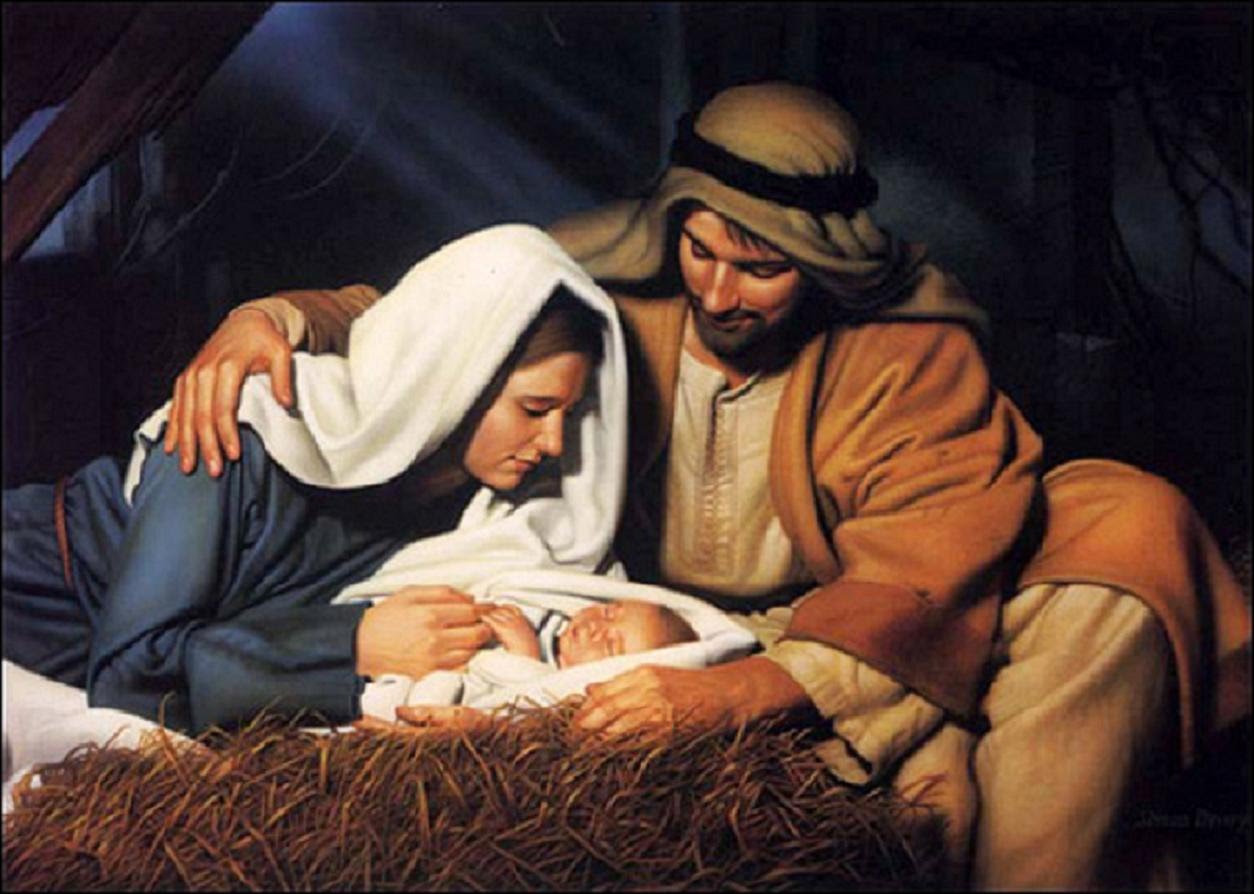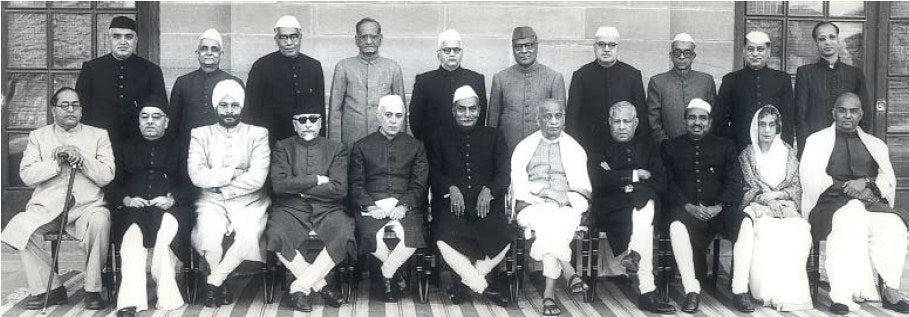
Christmas Day – an eagerly awaited festival of joy and happiness
Christmas Day – celebrated every year on 25th December across the world is one of the main Christian festivals, that celebrates the birth of Lord Jesus, believed by Christians as the son of God. Many countries observe it as a holiday, though not all.
The Messiah called Jesus
The word “Messiah” means "Anointed One," the name given to the promised Deliverer who would some day come to the people of Israel as their great Savior and Redeemer, “anointed” as Prophet, Priest, and King by God Himself. Some, of course, are still looking for the fulfillment of these Old Testament promises in the future, when the “Messiah” will come to establish a world kingdom of peace and justice centered, around the chosen nation, Israel. On the other hand, the group of Jewish believers who became the first founders of Christianity were convinced that Jesus of Nazareth was their promised Messiah. The name “Christ” is the Greek equivalent of “Messiah,” so that the name Jesus Christ really means "Jesus the Messiah," or "Jesus the anointed." They preached this truth with such conviction and power that not only many Jews but, later, a still greater host of Gentiles, believed on Jesus, both as the Christ and also as the Lord and Savior of all men. And indeed they had good reason for such faith. The Old Testament Messianic prophecies were found to be uniquely fulfilled in the Lord Jesus Christ. There are hundreds of these prophecies, so that the possibility of their accidental convergence on any ordinary man is completely ruled out by the laws of probability.
General observance – Many homes have Christmas trees like mistletoe, holly, ivy that are decorated in the weeks leading to Christmas Day it has become customary to decorate with greenery for these festivals. Closer to the actual day, presents are placed at various points on the tree with support or placed on a table close to it. The Christmas tree is decorated with all sorts of ribbons, decorative stickers and the like but the main attraction is the lighting which makes it look heavenly.
Festivities include exchange of gifts with children being the major beneficiaries mostly from parents, friends and Santa Claus. Christmas Day could be celebrated as a small community celebration in a small compound, or be restricted to a family affair. There could be a joint meal like a buffet or a pot luck meal with family and friends chipping in. Church services are attended locally with special services like a crèche or miniature Nativity scene.
Christmas Day is a public holiday in many countries worldwide, including Australia, Canada, the United Kingdom and the United States. Government offices, educational institutions, many businesses and post offices are closed on this day.

Carols
The tradition of singing of songs can be traced back to the festivals before the advent of Christmas. Indeed, the word carol is derived from the Greek word ‘choraulein’, which means "an ancient circle dance performed to flute music. "As carols were already an established custom, early Christians made the shrewd decision to integrate Christian songs into the tradition. Most new Christian Carols were written in Latin, which was by the middle ages, a language only used by the church, thus reducing the popularity of the custom.
However, carols received an injection of popularity when St. Francis of Assisi started his Nativity Plays in Italy in 1223, which included songs written in the local people's language.
[/vc_column_text][vc_video link="https://www.youtube.com/watch?v=_snbn8MeHRI" align="center"][/vc_column][/vc_row][vc_row][vc_column][vc_column_text]
Gifts
On the night of Christmas Eve, children around the world will leave  food and drink for whoever will come to their house and bring them presents. Who this is, depends on what part of the world you live. It might be Santa Claus or Father Christmas; but in Switzerland it will be the Christ child who delivers the presents. In Denmark, it's the Christmas elf; in Sweden, it'll be a small man and in Finland, it'll be the Christmas goat!
food and drink for whoever will come to their house and bring them presents. Who this is, depends on what part of the world you live. It might be Santa Claus or Father Christmas; but in Switzerland it will be the Christ child who delivers the presents. In Denmark, it's the Christmas elf; in Sweden, it'll be a small man and in Finland, it'll be the Christmas goat!
22% of men leave their Christmas shopping until the last two days before Christmas. Only 9% of women do the same. And 12% of us don't even start our Christmas shopping until the January sales.
Business during Christmas
 For many people, it is the most festive time of the year. Families come together to exchange gifts under a Christmas tree, perhaps near a fireplace where a Yule log is burning. Children beg Santa Claus to bring them their most desired presents.
For many people, it is the most festive time of the year. Families come together to exchange gifts under a Christmas tree, perhaps near a fireplace where a Yule log is burning. Children beg Santa Claus to bring them their most desired presents.
As mentioned earlier, for most retailers in professing Christian nations, the Christmas season is the most profitable time of the year, accounting for up to 40 percent—sometimes more—of annual sales. Christmas-related promotions may begin weeks—even months—before December 25. Santa Claus and his reindeer have been used to sell products ranging from soda to electric razors!
Christmas population in India
Compared to other religious festivals, Christmas is quite a small festival in India, due to the number of people who are Christians (about 2.3%) compared to people who belong to other religions. Having said this, the population of India is over 1 Billion, so there are over 25 million Christians in India!
There are now around 24 million Christians in India. The states with the largest percentages of Christians are:
- Arunachal Pradesh, Assam, Manipur, Meghalaya, Mizoram, Nagaland in north-east India.
- Goa on the west coast.
- Kerala and Tamil Nadu in the south.
Christmas Day is widely celebrated in these states, but may be barely marked in others.
Christmas Food in India
 Christmas cooking also starts early. Christmas sweets — mainly originating from Goa and adapted in the rest of the country — are traditionally called "kuswar," the way of celebrating and they range from deeply delicious dense Christmas fruitcakes to rose cookies and "kidiyo" (literally translating as worms, but these are deep-fried curly dough balls, dusted in icing sugar). We also make sweet dumplings called "newrio," stuffed with palm sugar, sweet grated coconut, and sesame seeds. Savoury banana chips, crisp chaklis (a round, deep-fried savoury made with lentils), and cardamom and cashew macaroons round up a versatile collection of Christmas goodies.
Christmas cooking also starts early. Christmas sweets — mainly originating from Goa and adapted in the rest of the country — are traditionally called "kuswar," the way of celebrating and they range from deeply delicious dense Christmas fruitcakes to rose cookies and "kidiyo" (literally translating as worms, but these are deep-fried curly dough balls, dusted in icing sugar). We also make sweet dumplings called "newrio," stuffed with palm sugar, sweet grated coconut, and sesame seeds. Savoury banana chips, crisp chaklis (a round, deep-fried savoury made with lentils), and cardamom and cashew macaroons round up a versatile collection of Christmas goodies.
Christmas around the world
Certain special observances or departures in Christmas.
Denmark
Christmas is called 'Jul', derived from Yule in Denmark. Christmas starts with advent, the fourth Sunday before Christmas Eve. A wreath with four candles and ribbons is hung up and one candle is lit. Another candle is lit on each of the following Sundays before Christmas.
All shops close at noon on Christmas Eve. In the afternoon, the Christmas dinner is prepared and some families may go to church to hear the Christmas Gospel. In the evening, Christmas dinner is served with duck, turkey or goose being popular meats.
After the meal is finished, the Christmas tree is lit. It is tradition for families to walk around the tree singing Christmas carols. Finally it's time to unwrap the presents, before coffee and sweets then bedtime.

United Kingdom
A law often quoted in regards to Christmas is the Holy Days and Fasting Days Act of 1551, which said that everyone in England must attend church on Christmas Day without using any form of transport. Rather disappointingly this law was repealed in 1969.
USA
Alabama was the first US state to legalise the celebration of Christmas. The last state to make Christmas a legal holiday was Oklahoma in 1907. The White House had its first Christmas tree in 1856. It was decorated by US president Franklyn Pierce.
Latin America
In Latin America, Christmas Eve is known as 'Nochebuena' or 'Navidad' and is the time when families have their traditional Christmas Dinner, often after attending a late mass called 'Misa de Gallo'.
Hungary
People buy (or make) presents for their relatives and friends in the preceding couple of weeks (so this period is the absolute boom of the year for most stores). Public transport stops operating at about 4 p.m.
Japan
In Japan, Christmas traditions arrived with Portuguese and Spanish missionaries in the 16th century, but the celebrations have been more popular in recent times as a result of Japan's increasing internationalization. It is not seen as a particularly significant religious holiday but as a chance for families to spend time together as part of the year end activities.
 One custom that has been become popular is eating strawberry shortcake and fried chicken on Christmas Eve. It has been said that the tradition of buying fried chicken may in part be a result of the similarity between a certain Colonel and Father Christmas - who is charmingly known as 'Uncle Chimney' in Japan.
One custom that has been become popular is eating strawberry shortcake and fried chicken on Christmas Eve. It has been said that the tradition of buying fried chicken may in part be a result of the similarity between a certain Colonel and Father Christmas - who is charmingly known as 'Uncle Chimney' in Japan.
Lebanon
On Christmas Eve, Christian Lebanese attend midnight mass. As a consequence of the colonial past, Santa Claus is known by his French name, Papa Noël. Gifts are either dropped off at church or Papa Noël makes a personal appearance at the home.
Luxembourg
Christmas Eve is not a national holiday in Luxembourg, however under a special working agreement, insurance companies have the day as a holiday and banks close in the afternoon.
Norway
In Norway, a custom is to hide all household brooms on Christmas Eve. It was once believed that witches came out on Christmas Eve and stole the brooms to ride the skies.
Switzerland
Good children get oranges, apples and nuts. Naughty children are supposedly carried away in the saint's big sack and told to clean up after his donkey. (Samichlaus, the Swiss Santa Claus, does not have reindeer.) On December 24 the Christkind (Christ Child) comes, bringing the Christmas tree and gifts. Candies and sweet cakes are brightly wrapped and placed under the tree.
[/vc_column_text][/vc_column][/vc_row][vc_row][vc_column][vc_gallery interval="3" images="14510,14507,14511,14505" img_size="1294*894"][/vc_column][/vc_row][vc_row][vc_column][vc_column_text]
Jesus has given the world Love and brotherhood, Santa Claus the quality of mirth and jolliness - qualities that are very much getting rare. Yet a tradition that has sustained over the years, the observance of Christmas Day is a heart-felt joy and the creation of a warmth and happiness that is cherished even more in such troubled times of now. Let us hope and pray that with the advent of Christmas it ushers in the much needed succour and solace that we need today, more than ever.
Merry Christmas to All!
[/vc_column_text][/vc_column][/vc_row]


































































































